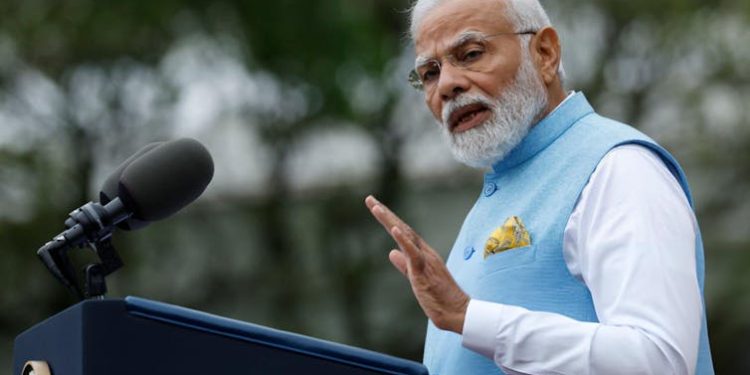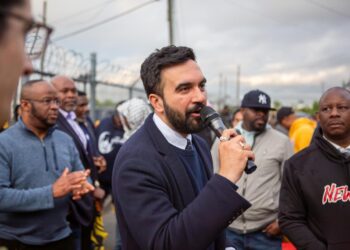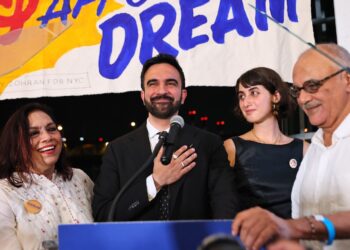Anuradha Sajjanhar, University of East Anglia
Narendra Modi was reelected as India’s prime minister in June for a historic third term. Yet his Bharatiya Janata party (BJP) does not have the privilege of an absolute majority for the first time in a decade. It will head a coalition government that is already rife with disagreement.
The result has called into doubt what many perceived to be an unwavering level of support for the BJP’s core ethos of Hindu nationalism, as well as its claims of national self-reliance and economic growth.
As I have discussed in my recently published book, an important part of the BJP’s strategy over the past 15 years has been to discredit established intellectuals as irrelevant, elite and detached, while at the same time building alternative forms of “credible” knowledge and expertise.
In the run up to the 2009 national elections, for example, the BJP created two entirely new thinktanks called India Foundation and Vivekananda International Foundation. This was, in my opinion, a way to make inroads into New Delhi’s elite, exclusive and primarily left-liberal policy ecosystem.
The BJP lost the elections that year. But it won by a landslide in 2014, and these two thinktanks provided personnel for many positions within the central government.
Under Modi’s leadership, experts have also been systematically replaced with appointed loyalists by dismantling or co-opting advisory committees, universities and established research institutions.
This strategy has, in practice, served to normalise ideas that may otherwise have appeared to be ideologically biased. This was clearly seen during the recent election cycle.
In April, Modi made a speech at an election rally in Banswara, Rajasthan, where he claimed the opposition Congress party wanted to distribute peeople’s wealth to “infiltrators” who are claiming more benefits than they deserve. He was widely seen as referring to India’s Muslim minority.
This stereotype of Muslims “stealing” from the welfare state was then reinforced by appointed experts from Modi’s Economic Advisory Council. The council published a questionable research paper in May arguing that Muslim birthrates are rising much faster than any other demographic.
However, the BJP is not a monolith. The core of the party’s social identity and grassroots base have historically been grounded in the Rashtriya Swayamsevak Sangh, a Hindu nationalist paramilitary organisation. But the party has never defined itself in terms of a uniform or cohesive political and economic ideology.
Modi and the BJP are able to draw on support from a wide range of groups across the political spectrum. So, their political communication and policy promises need to straddle both technocratic efficiency and Hindu nationalism. And these appointed experts have helped craft a narrative that combines both.
In recent years, several government ministries have outsourced the development and implementation of policy to thinktanks and global management consulting firms. Whether intentionally or not, these management consultants have been instrumental in promoting the idea that India’s Hindu identity is synonymous with the country’s technological and managerial advancement.
In 2019, for instance, the Modi government hired global accounting firm Ernst & Young (EY) to manage the Kumbh Mela – the largest Hindu spiritual gathering in the world. The firm developed a temporary city in the northern state of Uttar Pradesh with luxury tents, AI surveillance, and new transportation infrastructure.
The practice of paying consulting firms to manage events and make policy is now standard practice in many countries, arguably to the detriment of government capacity. But in an ethno-nationalist state like India, I would argue it is deeply symbolic. It combines the Modi government’s national grandstanding of building a technologically advanced “digital India” with its Hindu identity.
Democratic implications
India’s 2024 general election result was not technically a loss for the BJP. But it has been received as such by many. The party lost a significant number of seats in former constituency strongholds.
It lost its seat in Faizabad, the constituency where the party fulfilled the long-awaited desire of the Hindu rightwing to build a temple on the site of a demolished mosque. And the BJP also lost in Banswara, where Modi gave his Islamophobic speech.
Data analysis is still revealing the reasons behind voting patterns. But voters reacted positively to what the opposition offered: a commitment to upholding constitutional principles and democratic representation.
It may be naive to think the 2024 election proves that the Indian public are less willing to support the Hindu nationalism that Modi’s government has legitimised. After all, the BJP still won 240 out of the 543 available seats – a giant margin for a single party.
But it does show us that there is still scope for a plurality of political opinions in India’s universities, research organisations and thinktanks.
Anuradha Sajjanhar, Lecturer in Politics and Policy, University of East Anglia
This article is republished from The Conversation under a Creative Commons license. Read the original article.











